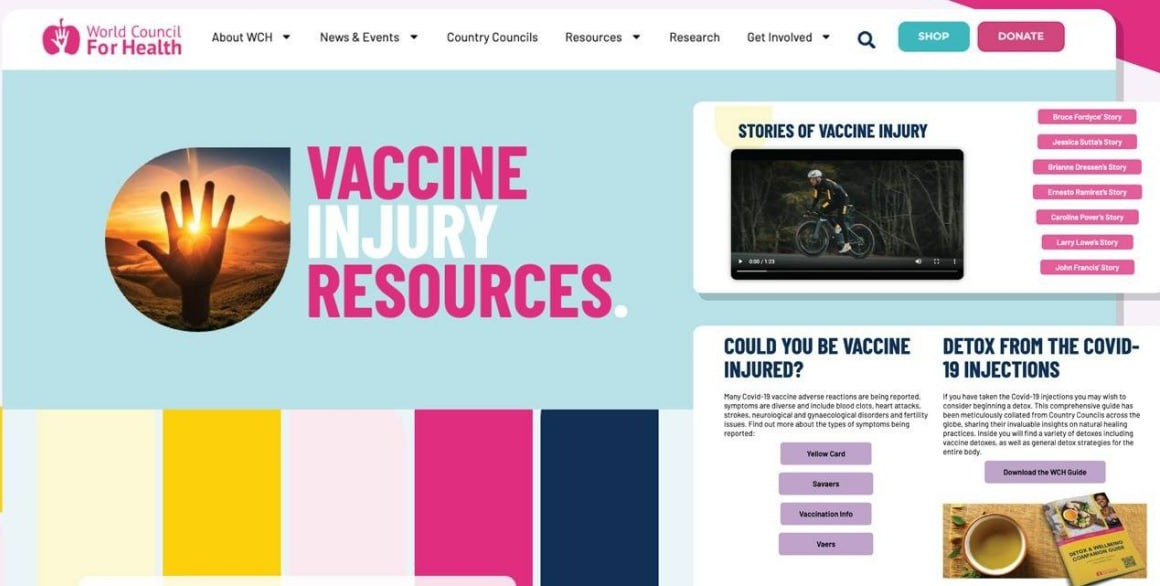Yale Confirms Covid Vaccine Injury: Spike Protein Persists for Years
This new preprint confirms that spike protein lingers and causes havoc to the immune system.
A groundbreaking Yale study has just confirmed what many have suspected for years—vaccine injuries are real, and the spike protein produced by the shots can linger in the body for years.
It doesn’t just hang out, it wreaks havoc
The study, conducted by Yale’s immunology team, found that the spike protein—the key component of the Covid injections—can persist in the body for up to 709 days. That’s almost two years!
The research also revealed chronic immunological suppression and autoimmunity in vaccine recipients, correlating directly with the presence of persistent spike protein.
In other words, the spike protein isn’t just hanging out harmlessly. It’s one of the most pathogenic proteins known, and its prolonged presence is linked to a host of debilitating symptoms, from chronic fatigue and brain fog to autoimmune disorders and viral reactivations (think shingles and Epstein-Barr virus).
How was this allowed to happen?
The Covid injections were developed and rolled out at record pace, thanks to Operation Warp Speed. But speed came at a cost. The mRNA technology, while revolutionary, was rushed. The spike protein was chosen as the target antigen because it was highly immunogenic, but it also happens to be toxic and shares similarities with human tissues, making it a prime suspect for triggering autoimmunity.
To make matters worse, the mRNA in the vaccines was modified with pseudouridine to prevent it from breaking down too quickly. While this ensured the mRNA could produce enough spike protein to trigger an immune response, it also meant the mRNA—and the spike protein it produces—could stick around far longer than anyone anticipated.
The immune system’s nightmare
The Yale study found that vaccine-injured individuals had lower CD4 cells (a key part of the immune system) and elevated levels of TNFα and CD8 T cells, indicating immune suppression and autoimmunity. Many participants also showed signs of viral reactivation, particularly Epstein-Barr virus and herpes.
In simpler terms, the vaccine isn’t just failing to leave the body—it’s actively messing with the immune system, leaving people vulnerable to chronic illnesses and infections.
This is a watershed moment. For years, concerns about vaccine injuries were dismissed as “anti-vax” propaganda. But now, we have hard data from one of the most prestigious institutions in the world confirming that these injuries are real, measurable, and linked to the persistence of the spike protein.
Find guidance and support on vaccine injury on our website:
Why is there so little follow-up?
What’s even more troubling is the lack of follow-up. Despite the alarming rates of side effects and deaths during the approval studies, there was virtually no long-term monitoring of vaccine recipients. Imagine if everyone had been equipped with a simple app to track their health post-vaccination. Instead, we’re left playing catch-up, trying to piece together the damage after the fact.
Meanwhile, the National Institute of Health (NIH) has poured a staggering $1.6 billion into researching Long Covid through its RECOVER Initiative. Yet, research into post-vaccination syndromes, particularly in Europe, has been largely ignored, receiving minimal funding and attention. While the European Commission has funded projects like VAESCO (Vaccine Adverse Event Surveillance and Communication) and COVAX to study vaccine safety, these initiatives aren’t specifically focused on post-vaccination syndromes. This disparity raises questions about why one area of research is prioritized while the other languishes in the shadows.
Further reading…
In clinical practice, we’re seeing something extraordinary—and troubling. Covid antibodies, specifically spike antibodies, remain highly elevated even years after the last injection. When these levels exceed 1000 BAU (Binding Antibody Units), it strongly suggests that the body is still producing spike proteins. Even more startling, we’re detecting circulating spike proteins in serum immunity cells and mRNA in exosomes. But here’s the catch: only three labs worldwide have the technology to conduct these analyses, so we’re left waiting for more insights from future publications.
What now?
The findings from Yale’s study are a wake-up call. They confirm that the spike protein isn’t just a temporary visitor—it’s a long-term intruder with the potential to cause lifelong harm. And with evidence suggesting that the mRNA could integrate into the genome, the effects might not stop with this generation.
This isn’t just about Covid vaccines. It’s about the future of mRNA technology and the need for rigorous, long-term safety studies before rolling out experimental treatments to the masses.
Real science doesn’t lie
The Yale study is a game-changer. It provides undeniable proof that the Covid injections can cause long-term harm, and it underscores the urgent need for transparency, accountability, and a moratorium on mRNA technology until we fully understand its risks.
So, the next time someone tries to dismiss vaccine injuries as “all in your head,” you can point them to Yale’s research. Because science—real science—doesn’t lie.
With all we know so far, the evidence is mounting, and it’s pointing to an urgent need for a moratorium on mRNA technology. This isn’t just a scientific curiosity—it’s a call to action, a plea to pause and reassess before we venture further into uncharted genetic territory. The stakes are high, and the consequences could last a lifetime—or longer.










And meanwhile the "official" covid-19 version and the further "encouragement" to take more of this experimental gene therapy goes on, despite what more and more of the world knows. This should be top of RFK Jr's agenda.